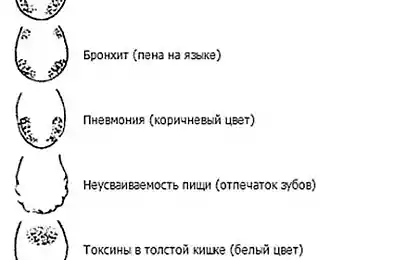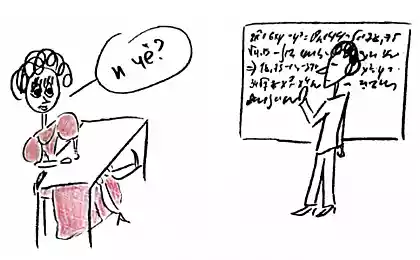333
Secrets of language: how words affect our thinking and behavior
854468
Language as a Mirror of Thought
Language is not just a tool for communication. It is a powerful mechanism that shapes our perception of the world, influences our thoughts and even determines our behavior. The words we use can inspire, motivate, or limit us. But how does language affect our thinking? Can we change our lives by changing the words we say?
In this article, we explore how language shapes our reality and look at the scientific evidence for its impact on our psychology and behavior. Ready to know more? Then let's go!
1. The hypothesis of linguistic relativity
The Linguistic Relativity Hypothesis, also known as the Sapir-Whorf Hypothesis, states that the language we speak affects our perception of the world. For example, some languages have many words to describe snow, which allows speakers of these languages to distinguish its shades better than those who do not have such words.
Example: There are more than 50 words in the Inuit language to describe snow.

2. Language and emotion
The words we use to describe emotions can influence how we experience them. For example, in Japanese there is the word tsundare, which describes the feeling of wanting to hug someone after a long separation. The presence of such a word allows native speakers to better understand and express this feeling.
Why it matters: Language helps us not only to describe, but also to understand our emotions more deeply.
3. The influence of language on decision-making
Research shows that language can influence how we make decisions. For example, people who speak languages where future time is clearly separated from the present (e.g. English) are more likely to save for the future than those whose languages do not make such a distinction (e.g. Chinese).
Example: In Chinese, the phrase “I’m going to the store tomorrow” sounds the same as “today I’m going to the store,” blurring the line between the present and the future.

4. Language and perception of colour
Language also influences how we perceive colors. Some languages have separate words for light and dark blue, which allows speakers of these languages to distinguish shades more quickly. Other languages lack such differences, making color perception less detailed.
Example: In Russian, there are separate words for blue and blue, which helps native speakers better distinguish between these shades.
5. Language and gender stereotypes
In languages with a grammatical gender (such as Spanish or French), words can carry gender associations. For example, the word "bridge" in German is feminine, and native speakers are more likely to describe it as "elegant" and "beautiful." In Spanish, where it is a masculine word, it is more often described as "strong" and "powerful."
Why it matters: Grammar gender can influence our associations and stereotypes.
6. Language and perception of time
In some languages, time is described in terms of vertical space (for example, “the past is above, the future is below”), and in others, horizontal (“the past is left, the future is right”). This affects how speakers of these languages visualize time.
Example: In English, time is often described as a horizontal line, and in Chinese, as a vertical line.
7. How to Change Your Life Through Language
Conscious use of language can help us change our thinking and behavior. For example, replacing negative words with positive ones can improve our mood and motivation. It’s also helpful to use language that emphasizes opportunities rather than limitations.
Council: Instead of “I have to,” say “I choose,” it gives you a sense of control.
Conclusion: Language as a tool for changing reality
Language is not just a way of communicating, but a powerful tool that shapes our perception of the world and influences our behavior. By understanding how the words we use affect our thinking, we can change our lives for the better.
Pay attention to how you speak and experiment with language. Perhaps this will be the key to new opportunities and a more conscious life. Share your thoughts in the comments - how does language affect your perception of the world?
Language as a Mirror of Thought
Language is not just a tool for communication. It is a powerful mechanism that shapes our perception of the world, influences our thoughts and even determines our behavior. The words we use can inspire, motivate, or limit us. But how does language affect our thinking? Can we change our lives by changing the words we say?
In this article, we explore how language shapes our reality and look at the scientific evidence for its impact on our psychology and behavior. Ready to know more? Then let's go!
1. The hypothesis of linguistic relativity
The Linguistic Relativity Hypothesis, also known as the Sapir-Whorf Hypothesis, states that the language we speak affects our perception of the world. For example, some languages have many words to describe snow, which allows speakers of these languages to distinguish its shades better than those who do not have such words.
Example: There are more than 50 words in the Inuit language to describe snow.

2. Language and emotion
The words we use to describe emotions can influence how we experience them. For example, in Japanese there is the word tsundare, which describes the feeling of wanting to hug someone after a long separation. The presence of such a word allows native speakers to better understand and express this feeling.
Why it matters: Language helps us not only to describe, but also to understand our emotions more deeply.
3. The influence of language on decision-making
Research shows that language can influence how we make decisions. For example, people who speak languages where future time is clearly separated from the present (e.g. English) are more likely to save for the future than those whose languages do not make such a distinction (e.g. Chinese).
Example: In Chinese, the phrase “I’m going to the store tomorrow” sounds the same as “today I’m going to the store,” blurring the line between the present and the future.

4. Language and perception of colour
Language also influences how we perceive colors. Some languages have separate words for light and dark blue, which allows speakers of these languages to distinguish shades more quickly. Other languages lack such differences, making color perception less detailed.
Example: In Russian, there are separate words for blue and blue, which helps native speakers better distinguish between these shades.
5. Language and gender stereotypes
In languages with a grammatical gender (such as Spanish or French), words can carry gender associations. For example, the word "bridge" in German is feminine, and native speakers are more likely to describe it as "elegant" and "beautiful." In Spanish, where it is a masculine word, it is more often described as "strong" and "powerful."
Why it matters: Grammar gender can influence our associations and stereotypes.
6. Language and perception of time
In some languages, time is described in terms of vertical space (for example, “the past is above, the future is below”), and in others, horizontal (“the past is left, the future is right”). This affects how speakers of these languages visualize time.
Example: In English, time is often described as a horizontal line, and in Chinese, as a vertical line.
7. How to Change Your Life Through Language
Conscious use of language can help us change our thinking and behavior. For example, replacing negative words with positive ones can improve our mood and motivation. It’s also helpful to use language that emphasizes opportunities rather than limitations.
Council: Instead of “I have to,” say “I choose,” it gives you a sense of control.
Conclusion: Language as a tool for changing reality
Language is not just a way of communicating, but a powerful tool that shapes our perception of the world and influences our behavior. By understanding how the words we use affect our thinking, we can change our lives for the better.
Pay attention to how you speak and experiment with language. Perhaps this will be the key to new opportunities and a more conscious life. Share your thoughts in the comments - how does language affect your perception of the world?
How to Learn to Meditate: Simple Steps for Beginners
Studying abroad: new opportunities and prospects























